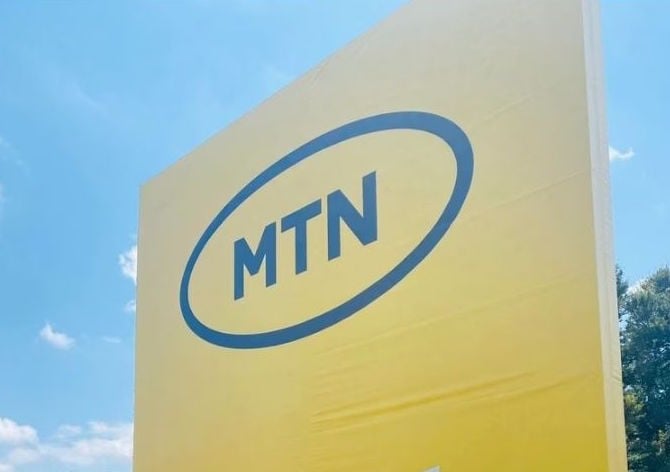Trillions Lost: Nigerians Suffer Staggering N300.2 Billion in Latest Ponzi Scheme Scandal

The Securities and Exchange Commission (SEC) has revealed that Nigerians have collectively lost a staggering N300.2 billion to various fraudulent Ponzi schemes in recent years. This substantial sum, compiled from in-depth findings into notorious schemes like MMM, Famzhi Interbiz Ltd, and MBA Forex and Capital Investment, highlights the devastating financial and social impact these operations have had on households and small investors. According to AbdulRasheed Dan-Abu, Head of the Fintech and Innovation Department at the SEC, these fraudulent schemes lured investors with promises of “extraordinarily high” and unsustainable returns, ultimately leaving many in financial distress.
It is crucial to note that the N300.2 billion figure represents only a portion of the total losses incurred by the investing public. This amount specifically excludes monumental losses from schemes such as CBEX, which alone reportedly led to Nigerians losing N1.3 trillion. Additionally, various other unregistered schemes have contributed to tens of billions of naira in further losses. Experts suggest that the actual total losses could be significantly higher, given the prevalence of unreported cases and the proliferation of online schemes that often evade regulatory scrutiny.
A detailed breakdown of the N300.2 billion in documented losses reveals the significant impact of individual schemes. MMM Nigeria accounted for approximately N18 billion of the losses. The MBA Forex and Capital Investment Ltd scheme was particularly destructive, accumulating an estimated N213 billion from Nigerians before its eventual collapse. Nospecto Oil and Gas defrauded investors of roughly N45 billion. Furthermore, other Ponzi schemes, including Chinmark Group, Ovaioza Farm Produce Storage Business, and Famzhi Interbiz Ltd, collectively cost Nigerians over N24 billion.
The case of CBEX stands out due to its immense scale. Months earlier, the embattled investment platform crashed, blocking investors from withdrawing funds and leading to a reported loss of about N1.3 trillion from over 600,000 Nigerians. Following this episode, the Economic and Financial Crimes Commission (EFCC), in collaboration with the SEC, committed to clamping down on the operators and promoters of such schemes. Since then, the EFCC has made arrests and recovered an undisclosed amount of money linked to CBEX.
In response to the escalating threat posed by Ponzi schemes, regulatory bodies are intensifying their efforts. The SEC, EFCC, Nigerian Financial Intelligence Unit (NFIU), and the Central Bank of Nigeria (CBN) have collectively vowed to identify and freeze accounts associated with illegal investment operators. This concerted approach aims to protect investors and maintain the integrity of Nigeria’s financial system.
A significant milestone in this fight is the signing of the Investment and Securities Act (ISA) 2025 by President Bola Tinubu in March. This new legislation empowers the SEC with enhanced authority to prosecute Ponzi scheme promoters, imposing a minimum sentence of 10 years’ imprisonment and a potential N40 million penalty. Emomotimi Agama, the Director General of the SEC, clarified that this N40 million penalty is just one component of the sanctions. He emphasized that the law also mandates “disgorgement,” meaning all profits and gains acquired through defrauding Nigerians will be recovered. The primary goal, Agama stated, is not just punishment but deterrence and the rehabilitation of victims.
Beyond legislative measures, the SEC has adopted a comprehensive strategy that combines investor education, strict enforcement, and inter-agency collaboration. This includes partnerships with relevant agencies to raise awareness among Nigerians, teaching them how to verify a company’s regulatory status before investing and how to identify the red flags of a Ponzi scheme.
You may also like...
Bundesliga's New Nigerian Star Shines: Ogundu's Explosive Augsburg Debut!

Nigerian players experienced a weekend of mixed results in the German Bundesliga's 23rd match day. Uchenna Ogundu enjoye...
Capello Unleashes Juventus' Secret Weapon Against Osimhen in UCL Showdown!

Juventus faces an uphill battle against Galatasaray in the UEFA Champions League Round of 16 second leg, needing to over...
Berlinale Shocker: 'Yellow Letters' Takes Golden Bear, 'AnyMart' Director Debuts!

The Berlin Film Festival honored
Shocking Trend: Sudan's 'Lion Cubs' – Child Soldiers Going Viral on TikTok

A joint investigation reveals that child soldiers, dubbed 'lion cubs,' have become viral sensations on TikTok and other ...
Gregory Maqoma's 'Genesis': A Powerful Artistic Call for Healing in South Africa

Gregory Maqoma's new dance-opera, "Genesis: The Beginning and End of Time," has premiered in Cape Town, offering a capti...
Massive Rivian 2026.03 Update Boosts R1 Performance and Utility!

Rivian's latest software update, 2026.03, brings substantial enhancements to its R1S SUV and R1T pickup, broadening perf...
Bitcoin's Dire 29% Drop: VanEck Signals Seller Exhaustion Amid Market Carnage!

Bitcoin has suffered a sharp 29% price drop, but a VanEck report suggests seller exhaustion and a potential market botto...
Crypto Titans Shake-Up: Ripple & Deutsche Bank Partner, XRP Dips, CZ's UAE Bitcoin Mining Role Revealed!

Deutsche Bank is set to adopt Ripple's technology for faster, cheaper cross-border payments, marking a significant insti...





